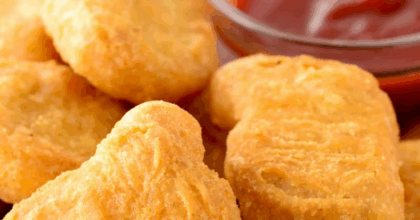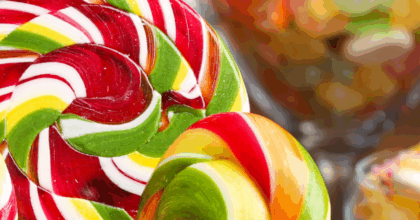37% of Brits aged 25-34 drink 5-6 different tea types
When it comes to a young Brit’s ‘cup of tea’ it seems the builder’s variety just isn’t their bag. Indeed, Mintel research on tea and hot drinks in the UK reveals that as many as 37% of Brits aged 25-34 have drunk 5-6 different types of tea at home or in the workplace over the past month*, compared to just 3% of those aged 55+.
Furthermore, Brits aged 25-34 are the most likely to drink every variety of tea tracked by Mintel. While three in four (74%) of those aged 25-34 drink standard black tea, around half drink fruit tea or herbal/spice tea (51%), green tea (52%), speciality black tea (50%) and one in three (34%) drink instant tea. However, when considering overall interest in tea varieties, while 70% of Brits drink standard black tea, less than two in five drink fruit tea or herbal/spice tea (36%), green tea (34%), speciality black tea (34%) and less than one in five (17%) drink instant tea.
And while younger Brits are the most likely to have an adventurous taste for tea, they are also the most likely to want to turn to tea to satisfy their sweet tooth. Over half (56%) of those aged 25-34 who drink tea and other hot drinks say that flavoured teas are a good alternative to sugary drinks, up from an average of 49%.
Anita Winther, Food and Drink Analyst at Mintel, said:
“Consumers aged 25-34 have the widest repertoire of tea, which is reflective of this age group typically having a more adventurous attitude towards food and drink, with a greater tendency to seek out new foods and flavours to try. While sweet flavours have been around in the tea market for a while now, these launches will help grow tea usage among younger consumers.”
Indeed, it seems that young consumers in particular are turning away from the traditional cuppa and are keen to see more of an experimental approach to tea. Two in five (40%) Brits aged between 16 and 34 who drink tea or other hot drinks say that they’d be interested in knowing more about how to pair tea with savoury food, up from a UK average of 28%. Meanwhile, 12% of adults who drink tea or other hot drinks say that they’d be interested in trying teas tailored for drinking as an alternative to wine, rising to 15% of those aged between 35 and 44.
But for some, even binning the bag appeals. Almost one in five (18%) of those aged between 16 and 44 who drink tea and hot drinks would be interested in trying tea crystals, compared to 6% aged 55+. Meanwhile, 10% of those aged under 45 would be interested in trying liquid instant tea concentrate, compared to 6% of those aged 55+.
“While there is a long history of pairing tea with sweet food in the West, Eastern cultures have more traditions when it comes to drinking tea with savoury foods. However, there have been moves to spark interest around the latter beginning to emerge in the West. Unlocking savoury usage occasions for tea could help to combat the falling sales.” Anita adds.
However, while younger consumers exhibit an enthusiastic approach to tea, overall tea sales in the UK are in hot water. Sales of tea fell by 5% in 2016 to 77 million kg, while the market is estimated to steep by a further 3% in 2017 to 75 million kg. What’s more, tea sales look set to come under further strain, with the market forecast to fall by 13% over the next five years to reach 65 million kg in 2022.
Indeed, while the humble teapot is something of an icon for the British nation, it seems that a coffee pot may be more fitting for the older generation. While older consumers are still the most frequent tea drinkers, 52% of those aged 55+ drink standard black tea once a day or less. Among this group, over half (55%) say they do not drink it more often as they prefer the taste of coffee. In comparison, while 80% of those aged between 16 and 34 drink standard black tea once a day or less, just one in four (23%) of this group say this is because they prefer the taste of coffee.
Instead, it seems it’s the sweet tooth of the younger consumer that is turning them away from the tea caddy. One in five (21%) Brits aged 16-24** say they don’t drink tea more often as it tastes too bitter, compared to 10% of those aged 55+ who say the same. Meanwhile, one in six (18%) of those aged under 25 say they don’t drink it more as they prefer sweeter drinks, compared to just 3% of those 55+.
“Tea remains under pressure from a barrage of competition from other drinks. While coffee has successfully injected connoisseur, indulgent and on-trend elements to the category, tea continues to struggle to deliver the same experience. This poses a marked threat to the category. Where tea has failed to establish itself as a menu staple for younger adults, it is likely to struggle to gain ground in their drinks repertoires later on.” Anita concludes.
*month to May 2017
**of those who do not drink standard tea or drink it once a day or less
Press review copies of the report and interviews with Anita Winther, Food and Drink Analyst at Mintel, are available on request from the press office.
For the latest in consumer and industry news, top trends and market perspectives, stay tuned to Mintel News featuring commentary from Mintel’s team of global category analysts.
-
Discover your next big breakthroughGet smart fast with our exclusive market research reports, delivering the latest data, innovation, trends and strategic recommendations....View Reports
-
2026 Global PredictionsOur Predictions go beyond traditional trend analysis. Download to get the predictive intelligence and strategic framework to shape the future of your industry in 2026 and beyond. ...Download now
-
Are you after more tailored solutions to help drive Consumer Demand, Market Expansion or Innovation Strategy?Ask for a customised strategic solution from Mintel Consulting today....Find out more


































